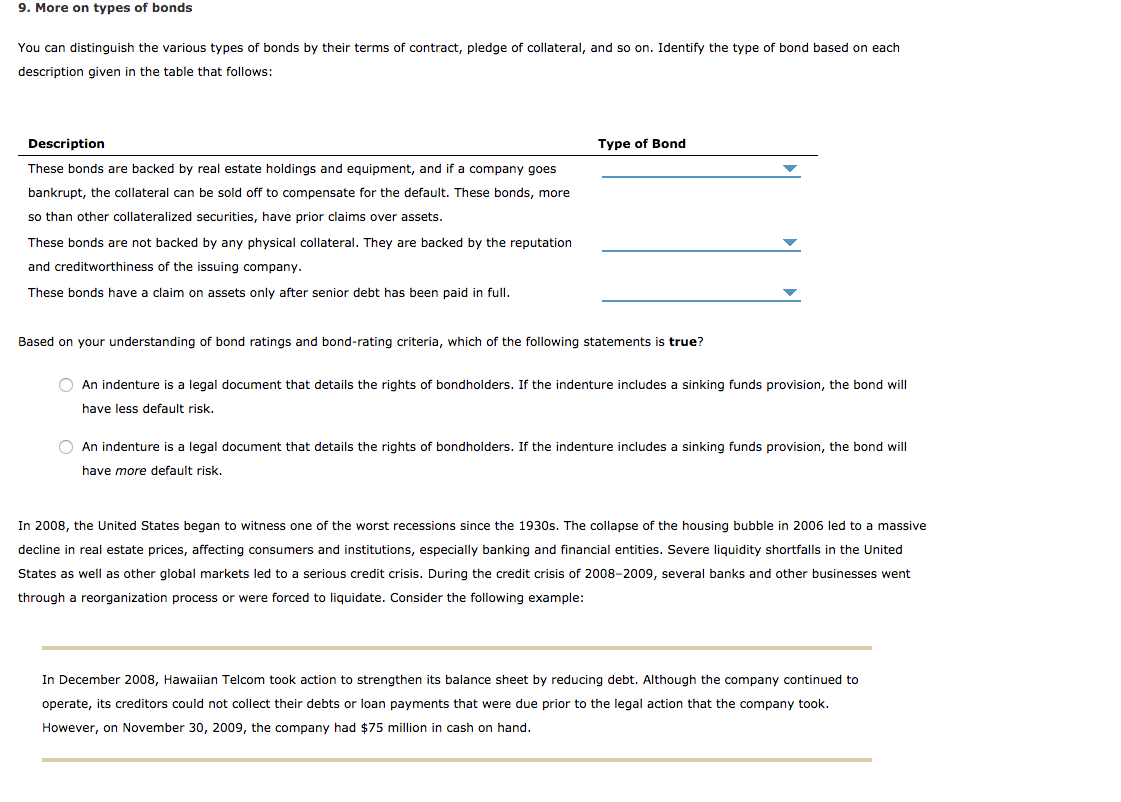

9. More on types of bondts You can distinguish the various types of bonds by their terms of contract, pledge of collateral, and so on. Identify the type of bond based on each description given in the table that follows: Description Type of Bond These bonds are backed by real estate holdings and equipment, and if company goes bankrupt, the collateral can be sold off to compensate for the default. These bonds, more so than other collateralized securities, have prior claims over assets These bonds are not backed by any physical collateral. They are backed by the reputation and creditworthiness of the issuing company. These bonds have a claim on assets only after senior debt has been paid in full Based on your understanding of bond ratings and bond-rating criteria, which of the following statements true? An indenture is a legal document that details the rights of bondholders. If the indenture includes a sinking funds provision, the bond will have less default risk. An indenture is a legal document that details the rights of bondholders. If the indenture includes a sinking funds provision, the bond will have more default risk. In 2008, the United States beqan to witness one of the worst recessions since the 1930s. The collapse of the housing bubble in 2006 led to a massive decline in real estate prices, affecting consumers and institutions, especially banking and financial entities. Severe liquidity shortfalls in the United States as well as other global markets led to a serious credit crisis. During the credit crisis of 2008-2009, several banks and other businesses went through a reorganization process or were forced to liquidate. Consider the following example: In December 2008, Hawaiian Telcom took action to strengthen its balance sheet by reducing debt. Although the company continued to operate, its creditors could not collect their debts or loan payments that were due prior to the legal action that the company took. However, on November 30, 2009, the company had $75 million in cash on hand This is an example of Liquidation Reorganization








